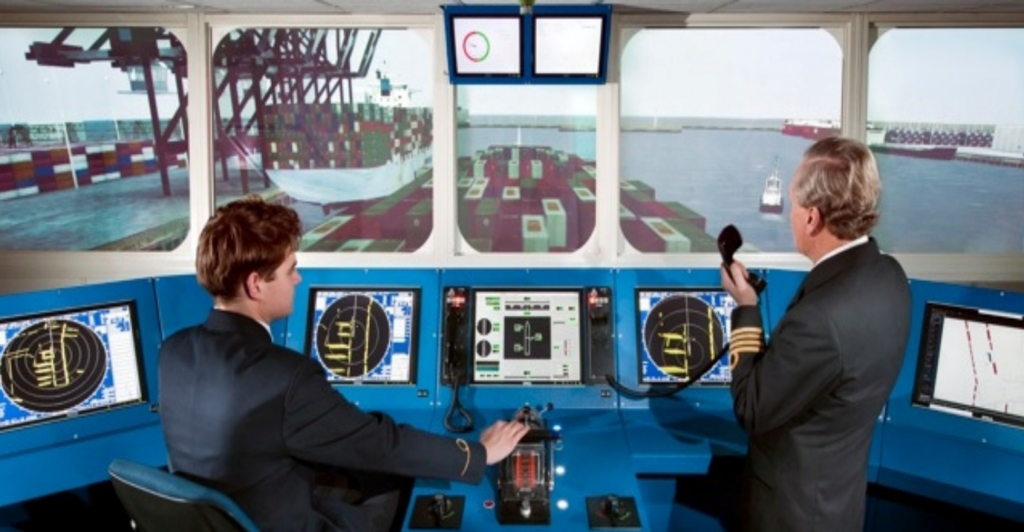
MORSE
We have received funding from the Dutch regional MIT programme for a very interesting AI human factors project. Primary goals of human factors analysis are measuring cognitive and emotional load on human operators, and to improve human performance. The aim of this project is to create an advanced simulation and training system measuring key human factors. It will be primarily applied to the maritime sector, but also applicable to other industries such as aviation and automotive. By developing new digital technologies we can help maintain an efficient and safe maritime sector.
Background
Human error is responsible for most shipping accidents, and that is often caused by poor design, fatigue and lack of training. Large container ships weigh one to two hundred thousand tonnes, are up to 0.4 km long, and frequently contain dangerous chemicals. Safety is very critical in this industry. To illustrate that point – recently a TEU container ship blocked the Suez Canal for 6 days, which led to at least 369 ships queuing to pass through the canal, and the value of the goods delayed each hour an estimated US$400 million. Local authorities said that “technical or human error” was the main reason for the blockade. Furthermore, staff shortages currently are a critical problem in the transport sector, and more efficient training solutions can be part of the solution to that issue.
Project Objectives
Noldus, Noterik, and VicarVision have received funding to create an advanced stimulation and training system. This system will measure key human factor performance indicators using real-time smart, unobtrusive AI-based analysis and web-based visualization to support debriefing. This will enable customers to significantly improve the quality of training, as well as to shorten the time for training and debriefing. MARIN (a large industrial TO2 maritime research institute) will be a launching customer and actively participate in the project, hosting validation studies and tests (co-creation).
Expected Results
The project will extend a) the Noterik’s StagePlayer with real-time behavior analysis to allow detection of stressful situations and high cognitive load, b) the human factor analysis capabilities of FaceReader by recognizing mental states (stress, fatigue, and cognitive load) and multimodal analysis (e.g. including vital signs measured from the face and vocal cues), and c) Noldus Hub with multi-modal human factors and training analysis. In this project, we will make a considerable advance on the current state of the art, aiming to create innovations that do not exist in this field. We will realize this using state-of-the-art methods in AI and machine learning (e.g. convulational neutral networks, active learning, generative adversarial networks, and signal processing).

